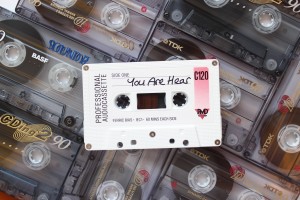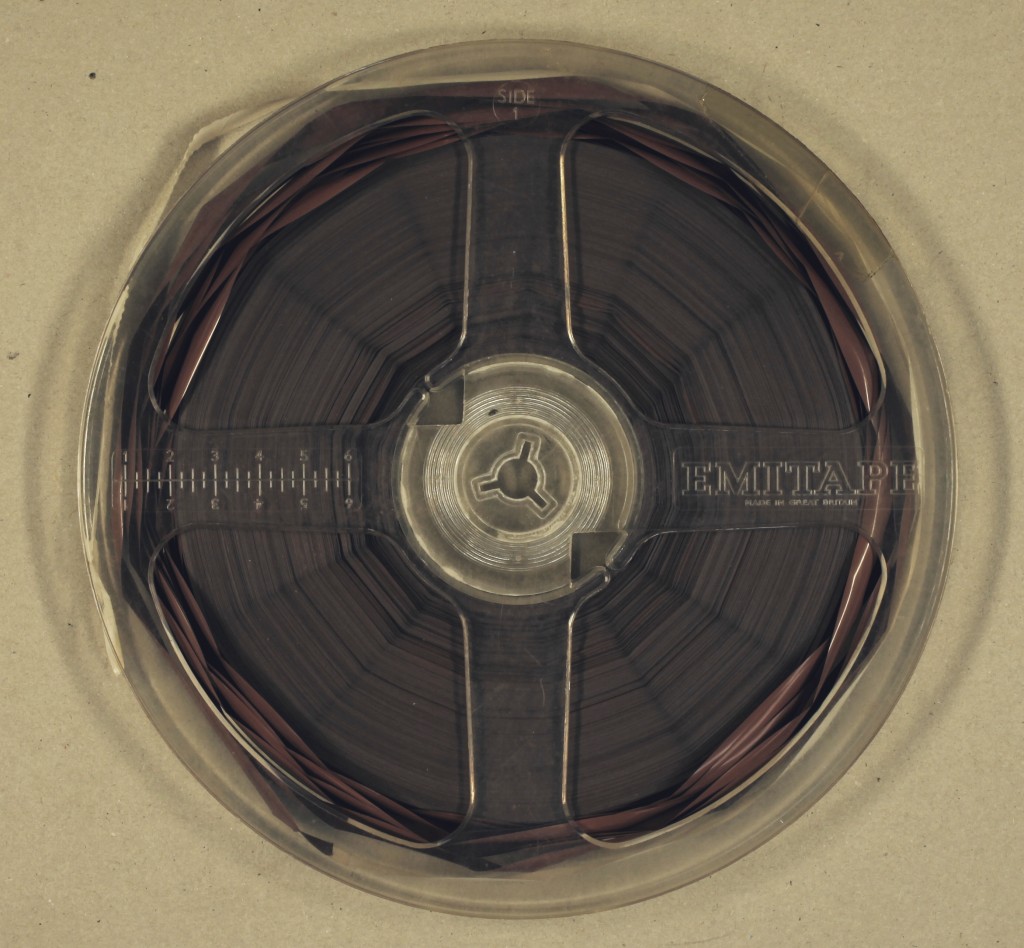 You Are Hear: sound and a sense of place is the Essex Sound and Video Archive project which aims to digitise, catalogue, and share our collections, helping people connect with the county’s rich heritage through listening to the sounds of the past.
You Are Hear: sound and a sense of place is the Essex Sound and Video Archive project which aims to digitise, catalogue, and share our collections, helping people connect with the county’s rich heritage through listening to the sounds of the past.
Cataloguing our recordings raises awareness of the wonderful stories and variety of musical traditions we have waiting to be discovered. Sharing our collections is in itself a worthwhile aim. However, the digitisation process is an equally significant part of the project. Without this step, our unique, irreplaceable audio collections could be lost forever.
Written records on paper or parchment are subject to threats like acidic inks eating away at paper, rusty staples wearing holes in documents, or mould forming where items have been stored in damp conditions. But if we assess the condition, rectify any problems, and keep the records stored in a stable environment, we can at least slow any further deterioration, if not stop it.
Sound and video recordings are another matter. The extreme flammability of nitrate film (used from 1895 to 1951) is well-known. Acetate film is also unstable, though less dangerous. Even with more stable polyester-based film and magnetic tape, there is a risk of deterioration as the chemicals used in the manufacturing process break down. Another danger with magnetic tape is that the base layer can become separated from the binder layer. Every playback of a tape recording puts it at risk. As for CDs, DVDs, and Blu-ray Discs, no one really knows about the long-term preservation of these, because they have not been around for long enough for us to find out (though we fear the worst).

A deteriorating reel of tape showing signs of ‘spoking’ (the tape shrinking and becoming tighter, pulling it taut around the centre of the reel, causing lines of tension to radiate out from the centre) and ‘cupping’ (the tape on the outer edges rolling in on itself)
As well as the risk of deterioration, obsolescence is another problem. Even if you have never before seen a book, you could work out how to access the information relatively quickly. But how do you access the information on a CD without a CD player? Do you have stacks of cassette tapes or cine-film reels hiding in your loft, with no way of playing them? We are carefully nursing our playback facilities so we can keep accessing these different formats, but the risk of equipment failure is high. Parts will inevitably wear out, but replacements are no longer being manufactured, and machines are no longer being supported by the suppliers. At the same time, the technical expertise to maintain the equipment is dying out as the commercial audio-visual industry moves on to digital formats.
The answer is digitisation. Unlike with written records, where the original record is easier to maintain in the long-term than electronic bits and bytes of scanned copies, with sound and video records, those electronic bits and bytes are our best hope. We can at least capture the information from obsolete formats before losing it, and then work on managing the digital versions to ensure continued access.
You Are Hear is not alone in addressing the need to digitise sound and video collections. Recently Rebekah Polding from Film London delivered a talk to the Essex History Group on the London’s Screen Archives project. This project brings together partners from local archive services, specialist institutions, private owners, and businesses that are based in London, to pool resources and ensure the city’s films are identified, saved through digitisation, and shared. They are even making some of them freely available on-line. You can find out more here.
The project is calling for anyone with films of London (including Greater London), or taken by Londoners, to donate it to the project. Get in touch with them (and us!) if you have something sitting in storage that is crying out to be saved, perhaps like this film of the annual Brandon Estate (Southwark) outing to Canvey Island in 1970:
As if trying to capture all the film about the capital city was not ambitious enough, the British Library has recently announced its new project, Save our Sounds, to try to preserve the sound heritage of the whole nation. A national audit will give a clearer picture of the extent and condition of sound archives across the country. The British Library will then be able to offer advice and discuss potential ways forward with partner institutions. You can find out more about the project here.
Edison ‘Concert’ wax cylinders in the collections of the British Library – find out more at here. Image courtesy of the British Library.
If you would like to sample just a few of the BL recordings and get a sense of their vast range, have a listen to these clips on their SoundCloud:
We are just about to submit our second-round application to the Heritage Lottery Fund to proceed with the You Are Hear project. You can subscribe to receive updates about the project here.
In the meantime, please do let us know if you have any sound or video recordings relating to Essex – we are always on the look-out for material to add to our collections. We also offer a commercial digitisation service if you have recordings at risk which you want preserved. We would be happy to discuss the options with you.

